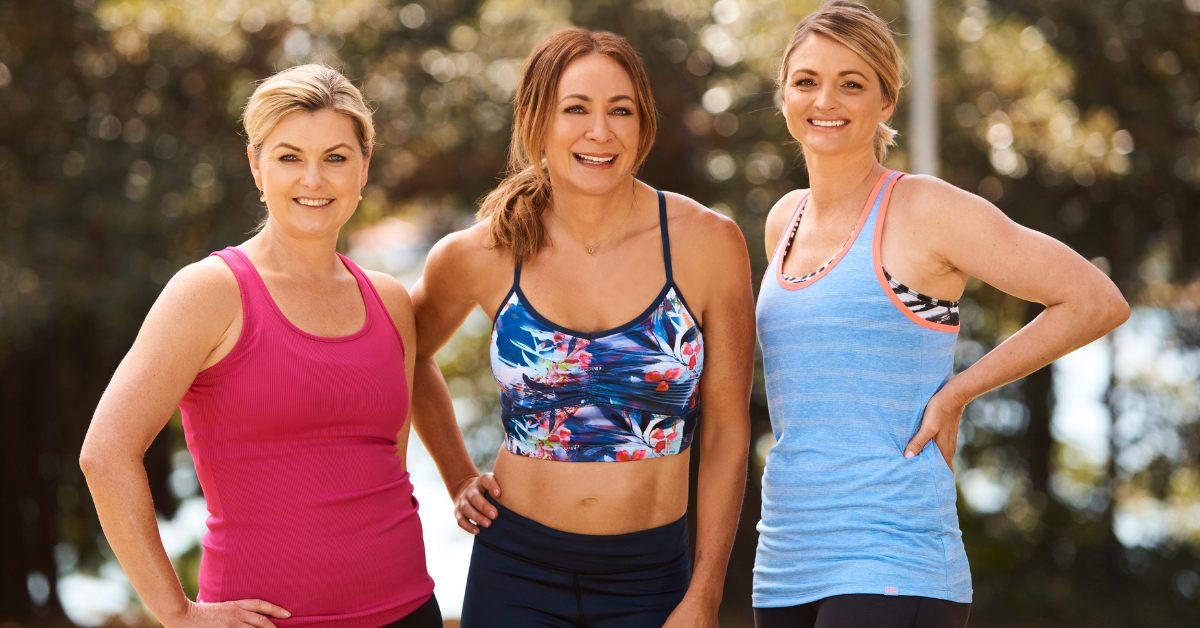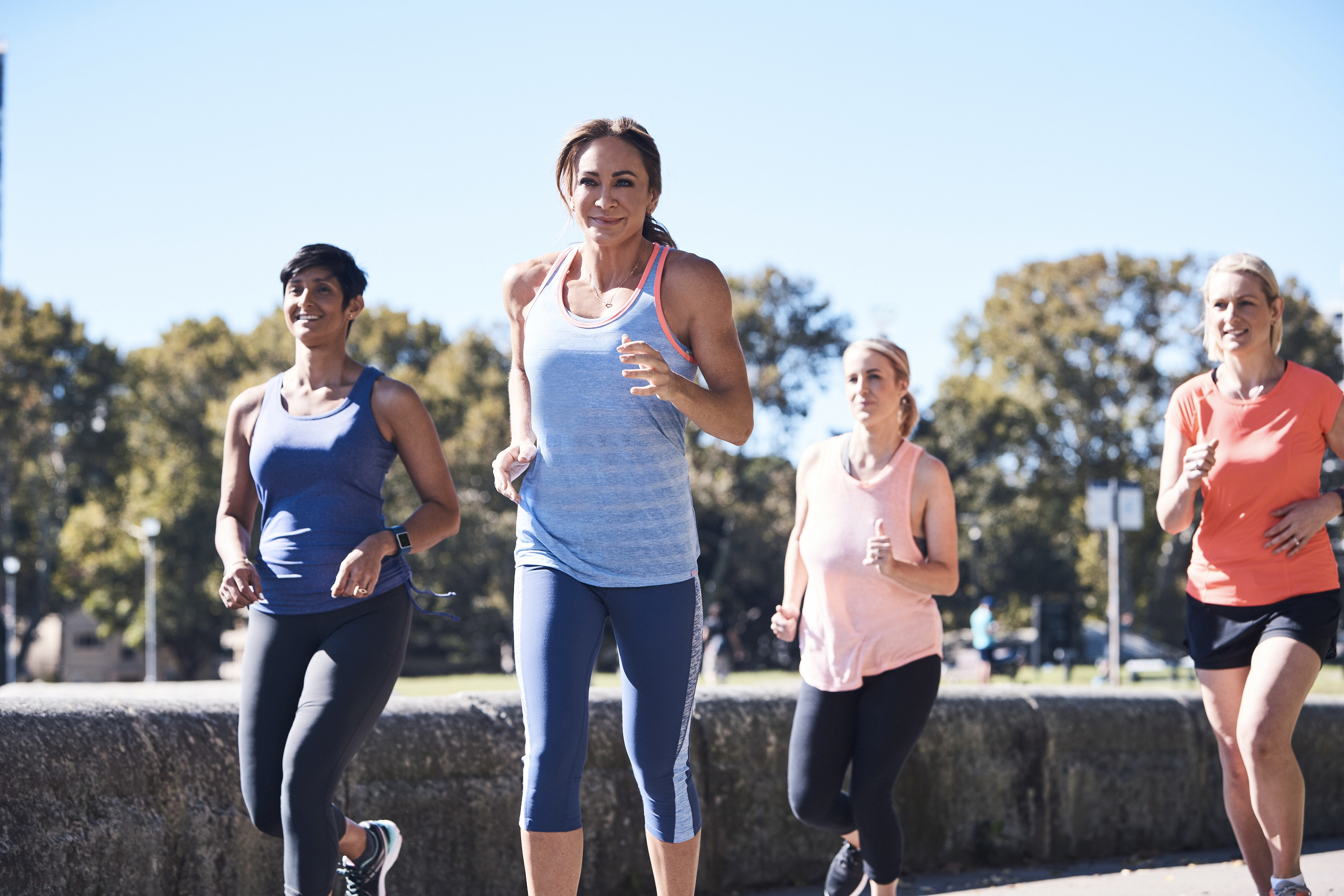Thinking of running a marathon in the next 12 months? It’s a fantastic fitness goal, provided you know how to approach it properly.
12WBT’s running expert Greta Truscott, who recently ran the gruelling Berlin Marathon, shares her expert training tips.
1. Nutrition leading into the marathon
Distance runners tend to have a diet consisting of:
- 70% cabs
- 20%protein
- 10% (or less) of fat
In the days before a marathon, you should be tapering your energy demands. If you are doing this, you will be able to obtain sufficient carbs from your usual diet without having to carb load.
The day before the Berlin Marathon, I ate very plain food:
- Breakfast: Oats and a banana
- Morning Tea: A banana
- Lunch: Rice and fish
- Dinner: Rice, tuna, corn and a tomato-based sauce
I chose food that was high in carbs and low in fibre, for lots of energy and a minimal chance of stomach upset, during the race. And, of course, I had plenty of water throughout the day.
Also read: The Best Pre-Workout Snacks
2. Training in the week before:
- Sunday: Tapered 12km run
- Monday: Easy 10 minute warm-up jog, 3 to 4km of marathon-pace running, 10 minute cool-down jog, then stretch and self massage
- Tuesday: Short walk and light core exercises
- Wednesday and Thursday: Easy 20 minute jog
- Friday: Stretch and self massage
- Saturday: Rest
- Sunday: Marathon race day
3. Race Day preparation
Race Day Breakfast: Oats with honey and low fat milk, a banana, a cup of tea and water.
Inside of one hour before the start time, I only sipped on water. I also made sure I went to the loo again as close to the start as possible, so I wouldn’t have to go during the race.
My husband and I stretched and sat down to conserve energy close to the start line. With the start fast approaching, I tried to keep my pacing plan in focus.
4. Strategy during the race
My main strategy, during the marathon was to focus on:
- Technique
- Breathing
- Drinking a few sips of water at every station
- Using energy gels at 10km, 20km, 28km, 35km
- Keeping pace
5. Post-marathon recovery, elation and celebration
Soon after the finish, I had some high-carb, high-protein snacks of fruit, nuts, and a muesli bar.
After that, I enjoyed a soothing shower, self massage and a lie down before heading out for a late, hearty lunch. I even had one beer to celebrate. Be sure to hydrate with water first if you imbibe alcohol, and don’t go overboard with it, or it will hamper your recovery.
1-2 weeks following a marathon, rest up and take on some:
- Easy swims
- Gentle biking
- Upper body and core work
- Self massage
- Stretching
- Walking
Your legs need to recover from the huge impact of the marathon, so only do some very short (20 minute) runs if you feel up to it. About 6 days later, I did about 10 minutes of easy, soft sand running.









Hi there, sounds lilke a great race!! I have just signed up for my third (non sequential) round of 12 WBT, mainly to try to control my food during marathon training. I did my first marathon last year and planned to do my second this month but suffered an injury about a month ago so had to push my plans out to an October marathon. The reason I came back to 12WBT was that for the first half of this year I have been on a pretty rigorous running program, but found, although I was putting in the miles (and eventually got injured) I was also putting on weight – not the idea!! So when I saw Michelle had done a marathon training program I thought it sounded like the perfect combo. But my question is – I have picked marathon training and 1200 calories (I am usually around 70kgs, now at 74 but my dream is to get to 65 and I am usually pretty successful when I stick to 1200), do you think that is realistic or should I at least be on 1500? on my last training program they advised between 2500-3000 per day (around 70-90kms per week), but I found myself gaining weight and feeling heavier. Do you really need to eat more? I have always assumed if I ate all the calories I burnt I wouldn’t lose weight, but with three kids and a full time job am also really conscious of maintaining energy levels and not falling in a heap mid afternoon! I know this will unfold a bit as the prgoram goes on but I get a bit OCD about my training/ food and was just wondering if you had any advice on this?
Hi Susan,
It’s Greta here the running specialist on the 12WBT Support Crew. Thank you, awesome to hear from you. In training for a marathon we recommend 2000 calories per day to promote strong energy levels and performance through receiving adequate nutrients. You are super busy with 3 kids, a full time job and marathon training so the nutrition will be all the more important. If you find that you are not losing weight on this amount of calories, then reduce your calories a fraction, particularly on your easier or non-running days i.e. to 1500-1800 calories per day.
Good luck and we would love to hear how you are going.
Greta Truscott